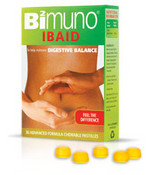
The frustrated firm is already changing on-pack claims for its Bimuno products ahead of December 16 this year to comply with thousands of rejected claims under the European Union nutrition and health claims regulation (NHCR).
With the dismissal of its appeal to EFSA’s 2011 rejection of a gastrointestinal health claim, Clasado is taking its gripe to the EU Ombudsman.
George Tzortzis, Clasado chief scientific officer, told us the company that also has an office in Malta,“had not given up on EFSA” and would submit more health claims the NHCR, but in regard to this article 13.5 claim rejection, the Ombudsman was the appropriate course of action.
“We have started working on a dossier to send to the Ombudsman,” Tzortzis said, noting its submission was not being influenced by another NHCR complaint to the Ombudsman mounted by the pan-European food supplements trade group, EHPM (European Federation of Associations of Health Product Manufacturers).
“We just want the regulation to work the way it was supposed to. EFSA published guidelines and then they didn’t follow them and didin’t explain why not. Are they guidelines or not?”
Four weeks?
Clasado is particularly aggrieved that EFSA’s Panel on Dietetic Products, Nutrition and Allergies (NDA) criticised trials for not being four weeks long, when this was not mentioned in the guidance.
“The application we filed in 2011 was carefully prepared in the light of the guidelines issued by EFSA, in particular with regard to the design of our trials,”Tzortzis said.
“The guidelines did not stipulate that trials had to be of four weeks duration and referenced a study criteria which is not relevant to our product. Notwithstanding this, the EFSA opinion to reject the application was given for reasons that were not:
(i) Set out in their guidelines; or
(ii) Raised by EFSA in either of the two stop-the-clock information requests."
The NDA said four weeks was needed due to the, “fluctuating nature of gastro-intestinal symptoms” and dismissed a two-week trial Clasado had submitted.
Right to adjudicate?
In a statement, the company challenged the right of EFSA to handle appeals to its own verdicts, especially in regard to Clasado’s own assertions that the NDA had committed procedural errors in delivering its Bimuno verdicts.
“A key element of the aforementioned submissions were that, because the relevant EFSA panel had made procedural errors, then the same panel must not be allowed to decide on whether it had in fact made any errors.”
“The decision by EFSA to reject those observations is deeply flawed in that:
(i) It gave no detailed reasons why a trial now had to be of four weeks duration (a point absent from its guidelines).
(ii) This and other claims that EFSA had not properly followed its own procedure were considered by an EFSA panel largely consisting of the same individuals. This as is submitted is a clear breach of the European Commission's own guidelines as well as a breach of natural justice.”
The dossier the NDA rejected in December 2011 included eight human intervention studies, two human observational studies and three non-human studies.
Bimuno is Clasado’s trademarked transgalactooligosaccharide.







